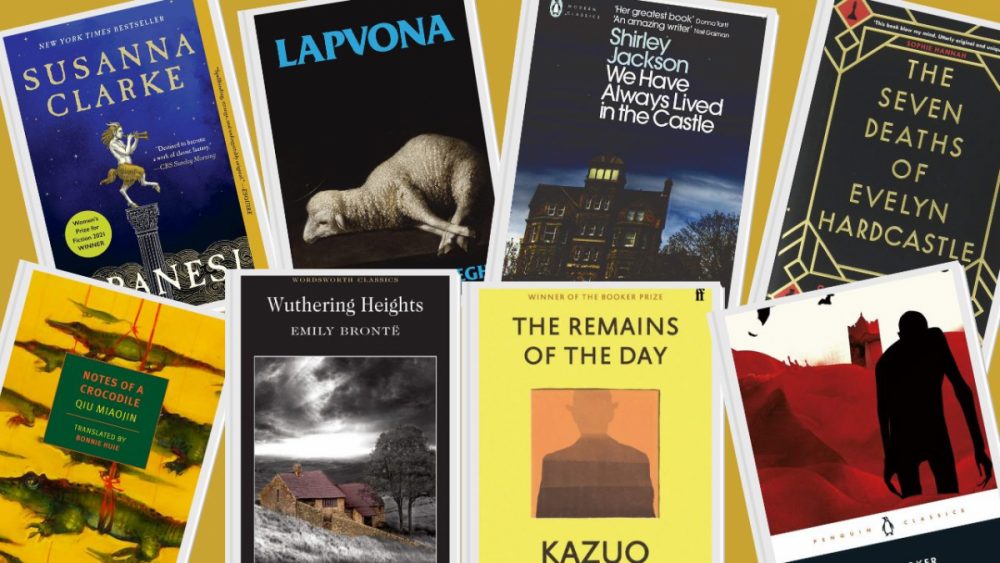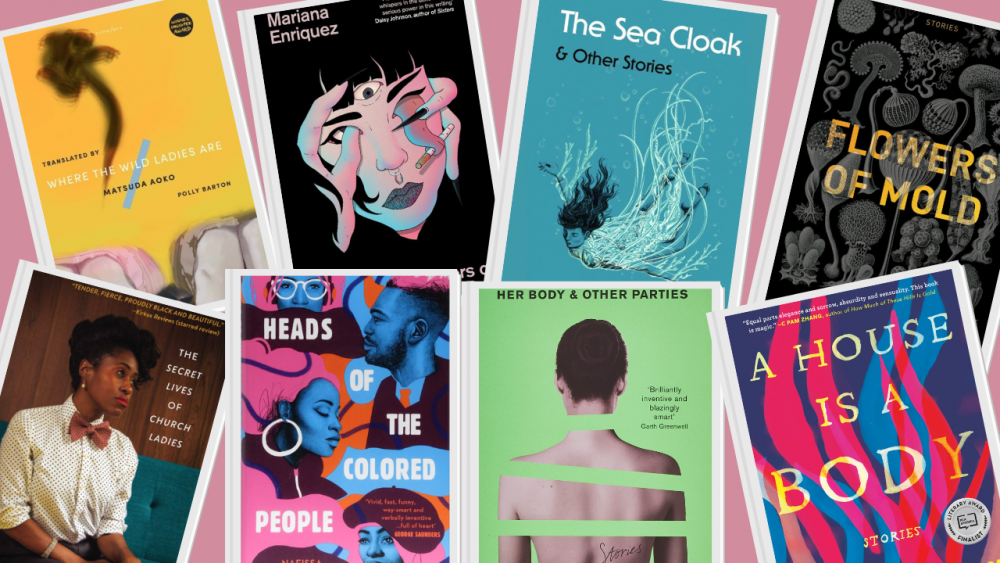Africa is obviously a large and diverse continent. Unfortunately there is not (as yet) an equally large amount of English translated African books. And of that comparatively small amount, even less of it is written by women.
However, below is a selection of some of the best translated African books written by women, from novels to short story collections, covering what is hopefully a wide range, both geographically and thematically.
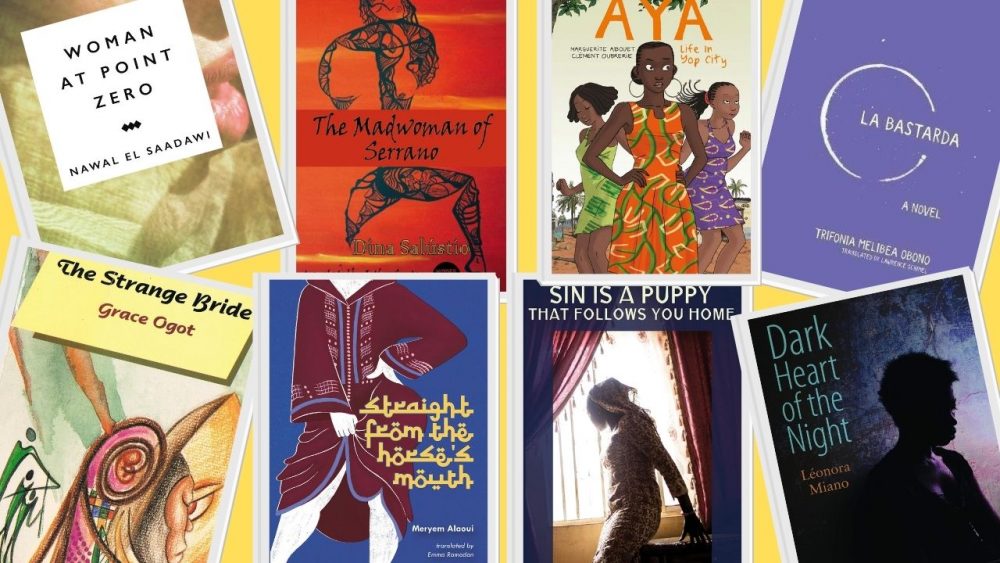
Must-Read Translated African Books by Women Writers
To date, most African literature that has been translated into English is translated from Arabic and colonial languages (such as French, Spanish, or Portuguese) rather than Indigenous languages.
While this will hopefully change in the future, these literary gems are still few and far between. But there is, I’m happy to say, some representation of that group to be found in the below list of African books in translation.
Straight from the Horse’s Mouth by Meryem Alaoui (Morocco)
Translated from the French by Emma Ramadan
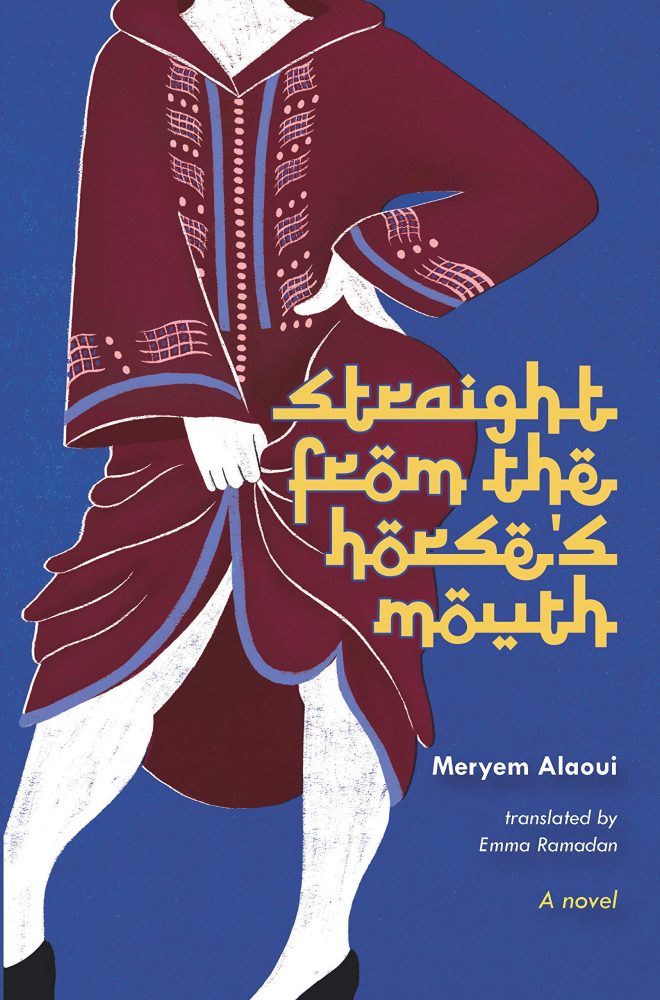
I have loved every Moroccan book I’ve ever read, and Straight from the Horse’s Mouth was no exception!
Jmiaa and Halima are roommates, living in a working-class Casablanca neighbourhood. They are both also working as prostitutes to make the rent and pay the bills, thanks in no small part to Jmiaa’s deadbeat husband.
But whereas Halima worries and frets about her profession, Jmiaa sees it more as a daily grind, with her main problem being her struggle to present a more “respectable” front to her conservative mother.
However, that daily grind is disrupted — and not in a bad way — when she is enlisted to help in a film project by an aspiring young director. It’s initially just as a behind-the-scenes authenticator. But somehow Jmiaa ends up as the lead, very much in front of the camera, and on a collision course with an incredible opportunity.
Considering the work situations Jmiaa describes, this could be a dark, unsettling book. But as she handles these struggles with wit and resilience, you can’t help but enjoy – and root for – this very likeable protagonist.
La Bastarda by Trifonia Melibea Obono (Equatorial Guinea)
Translated from the Spanish by Lawrence Schimel
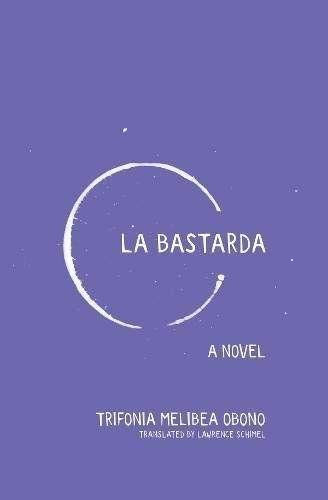
La Bastarda is the first novel by a female author from Equatorial Guinea to be translated into English. It is also banned in Equatorial Guinea, which speaks volumes about its importance in the world of LGBTQ+ literature.
Okomo is an orphaned teen, born out of wedlock and as such a “bastard”, who lives in the oppressive and patriarchal Fang community. Under the watchful and disapproving eyes of her grandmother, she dreams of finding her father, though she is forbidden to do so.
Teaming up with fellow societal outcasts — including Okomo’s uncle Marcelo, who is shamed by the Fang villagers for being a “woman man” due to his homosexuality — Okomo eventually feels herself drawn to one of the female members of her new acquaintances. Together, they rebel against the heteronormative constraints of the Fang community.
This is a superb coming-of-age story about challenging and overcoming traditional ideas about family structure, gender and sexuality.
Sin is a Puppy That Follows You Home by Balaraba Ramat Yakubu (Nigeria)
Translated from the Hausa by Aliyu Kamal
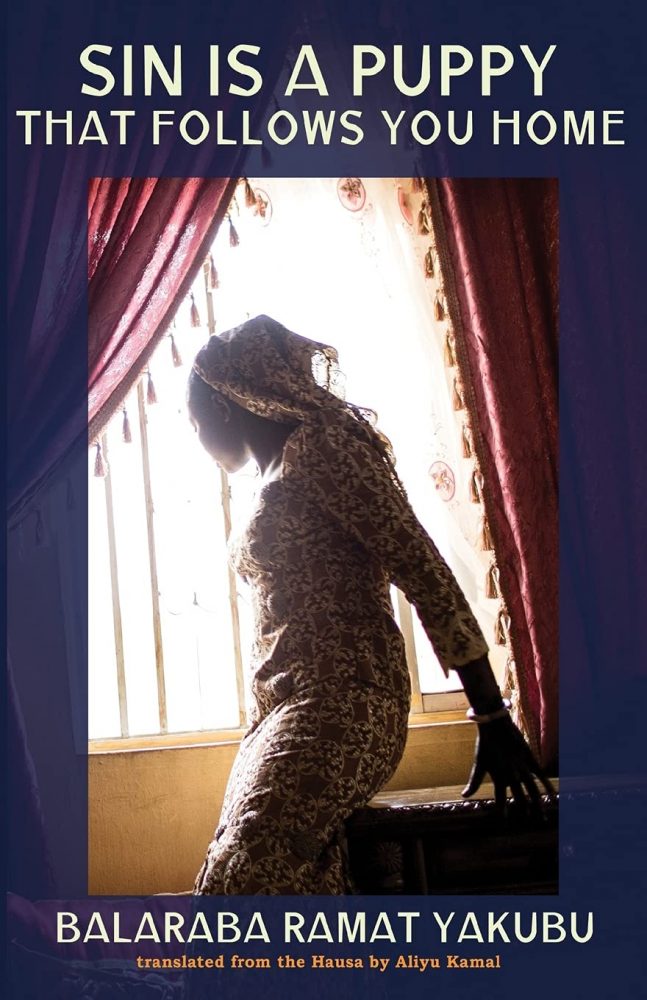
From Nigerian writer Balaraba Ramat Yakubu comes this searing and damning exploration of an unfortunately common familial situation: when a husband engineers circumstances so that he eats very well and dresses in finery, while his wife and children live in neglect and poverty.
One such husband is Alhaji Abdu, who lives a life of luxury while his wife Rabi and their nine children struggle to get by on scraps and one new item of clothing per year. Eventually he marries for a second time, and Rabi and the children are left to fend for themselves.
As the first ever full-length novel translated from Hausa into English, Yakubu’s book can be seen as a gateway into a whole new world of literature. And while it may appear that this book offers only a bleak glimpse into that world, it is not all doom and gloom. Rabi is a strong character, who perseveres as events unfold towards a satisfying outcome.
Also, can we just reflect on how perfect this title is?
Aya: Life in Yop City by Marguerite Abouet (Côte d’Ivoire)
Translated from the French by Helge Dascher
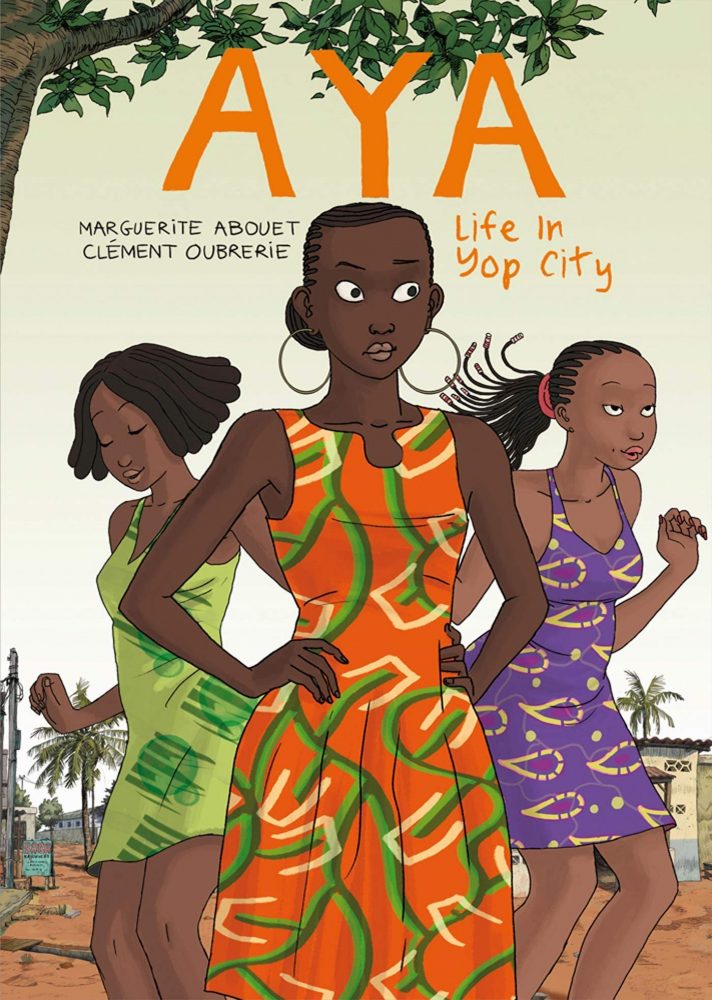
Brightly coloured, sharply written and with some very wry humour, this award-winning collection comprises the first three volumes of Abouet’s six-part series Aya of Yop City.
Aya is the 19-year-old oldest child in a large family living in working-class Abidjan in Côte d’Ivoire during the late 1970s.
Her friends Adjoua and Bintu are easygoing, a refreshing counterpoint to her meddling relatives and the other members of the community she lives in. Together, they attempt to navigate the complexities of adulthood, as they try by turns to study, marry, and perhaps raise a family.
Loosely based on the experiences of the author, this colourful omnibus covers themes of family traditions, friendship, patriarchy and French colonisation, with some excellent observations thrown in.
Dark Heart of the Night by Léonora Miano (Cameroon)
Translated from the French by Tamsin Black
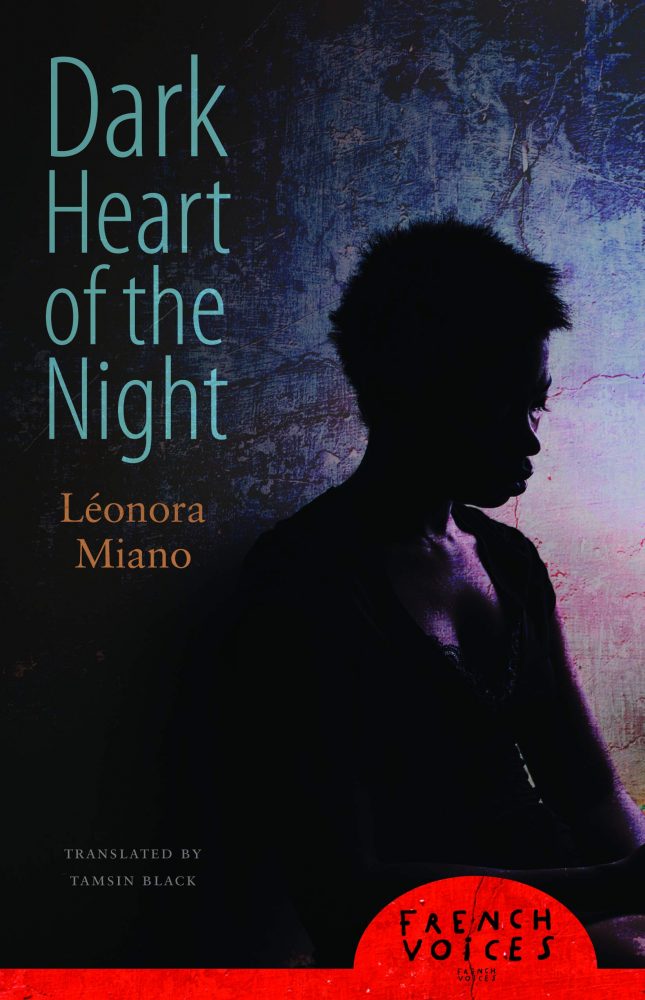
In this dark and disturbing African novel, we follow Ayané, a young woman whose parents were ostracised by her community in Cameroon, and who returns from France to visit her old home. But now she is seen as an outsider, and is shunned and distrusted by those who were once her neighbours.
As she deals with this new alienation, a rebel militia invades and takes over the village, committing unspeakable acts of ritualistic violence, all for the “benefit” of Africa. Now the villagers must deal with the consequences of these actions, and Ayané must face the grim reality she has found herself in.
Dark Heart of the Night stands as an exploration of the concept of African identity, and the consequences of being made complicit in traumatic actions carried out under the thin veneer of righteousness.
Please note: some copies come with a foreword by Teresa Svoboda that the author vehemently disagrees with. If this is the case with your copy, please skip over the foreword and read instead just the author’s intended words.
The Madwoman of Serrano by Dina Salústio (Cape Verde)
Translated from the Portuguese by Jethro Soutar
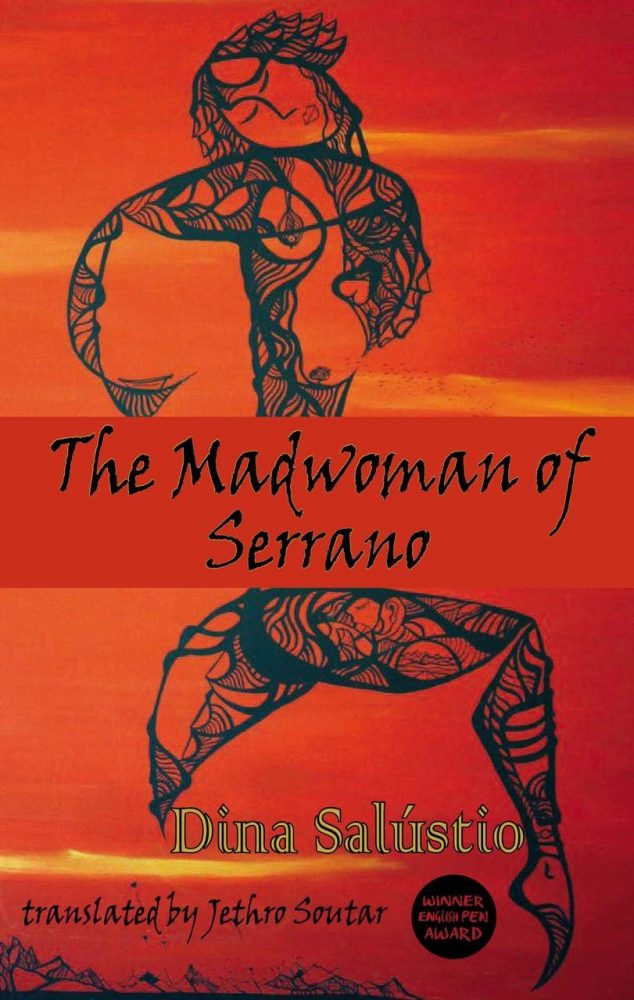
Not only is this African novel the first by a woman to be published in Cape Verde, but it’s also the first by a Cape Verde woman to be translated into English.
When a woman falls from the sky near the village of Serrano, she is found by Jeronimo, who falls in love with her. After they have a daughter, Filipa, the woman disappears.
Filipa eventually befriends the local “madwoman” of the title, who rambles prophetically about those who live in Serrano.
But Filipa is then taken from the village under mysterious circumstances, and grows up in the city with only memories of her parents and her mad friend. Will she ever see her father again? And what will happen if the madwoman’s prophecies begin to come true?
Salústio manages to blend everyday issues, such as the role of women in society and the battle between rural and urban life, with magical realism in this very inventive and engaging story.
Eve out of Her Ruins by Ananda Devi (Mauritius)
Translated from the French by Jeffrey Zuckerman
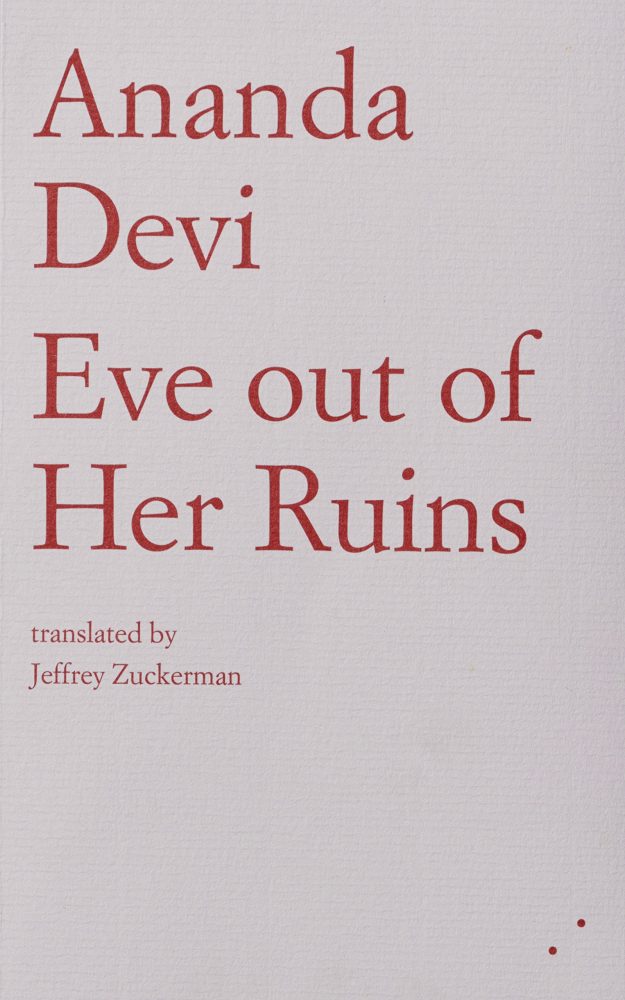
This short but powerful novel follows the lives of four main protagonists in the poverty-stricken Port Louis district of Troumaron.
At the heart of the book is the titular Eve, a young woman who allows men to “use” her body, and while they take without giving anything back she still derives power from them.
Then we have Saadiq, Savita and Clelio. Saadiq believes himself in love with Eve, almost as much as he is in love with books, poetry and Rimbaud.
Savita is Eve’s best friend, and Saadiq’s main obstacle in his pursuit of Eve, as she and Eve can share moments of quiet freedom he will never be a part of. Clelio is part of Saadiq’s gang, and he waits with diminishing hope for his brother to send for him from France, and provide him with some direction in life.
At times unsparing, sensual, heartbreaking and lyrical, this slice of Mauritian life leaves a lasting impact, and serves as a good starting point for Mauritian literature beginners.
If you love the Mauritius setting, another [translated] Mauritian author you should check out is Nathacha Appanah.
Woman at Point Zero by Nawal El Saadawi (Egypt)
Translated from the Arabic by Sherif Hetata
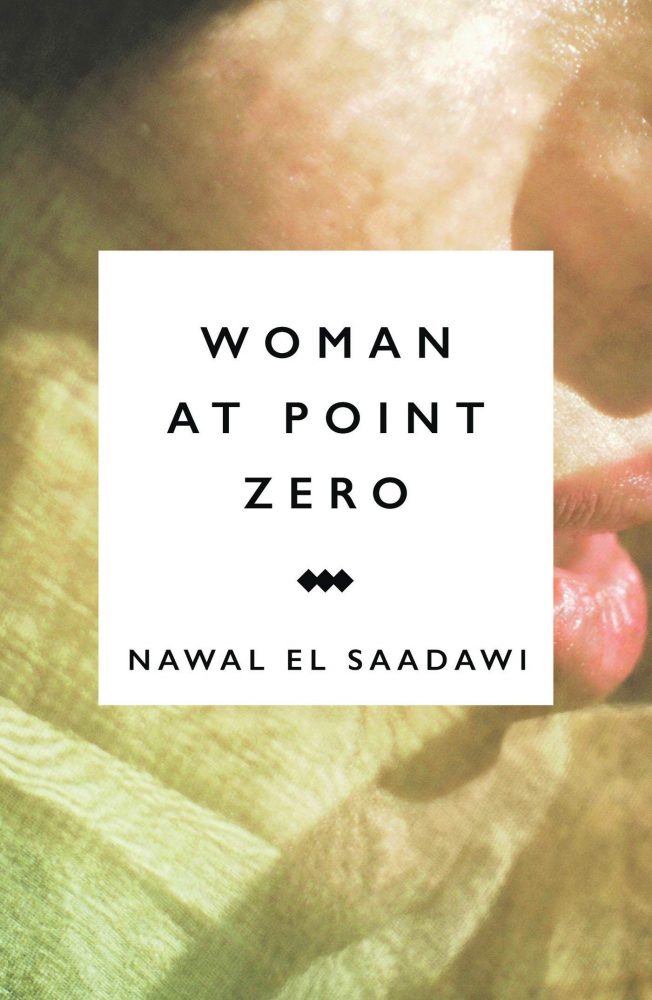
On visiting a women’s prison, a psychiatrist becomes intrigued by Firdaus, an inmate awaiting execution, who she is told rarely eats or sleeps, and who does not talk to anyone. After several unsuccessful attempts to speak with Firdaus, the psychiatrist is stopped as she is leaving the prison by a message that Firdaus will speak with her.
With the two of them in her prison cell, and the window closed, Firdaus tells the story of her life, from her childhood, through all her abysmal and horrific encounters with patriarchal men who mistreat and betray her at every turn, up to the point where she commits the murder for which she is imprisoned.
This literary indictment of society’s treatment of women, not just in Egyptian Africa but in the world at large, is – as you might imagine – fiercely feminist, and still maintain’s its importance to this day.
If you love El Saadawi’s writing, she has several other books worth checking out. And if you love the Egyptian setting, luckily translated Egyptian literature has one of the highest percentages of female authors!
The Strange Bride by Grace Ogot (Kenya)
Translated from the Dhulou by Okoth Okombo
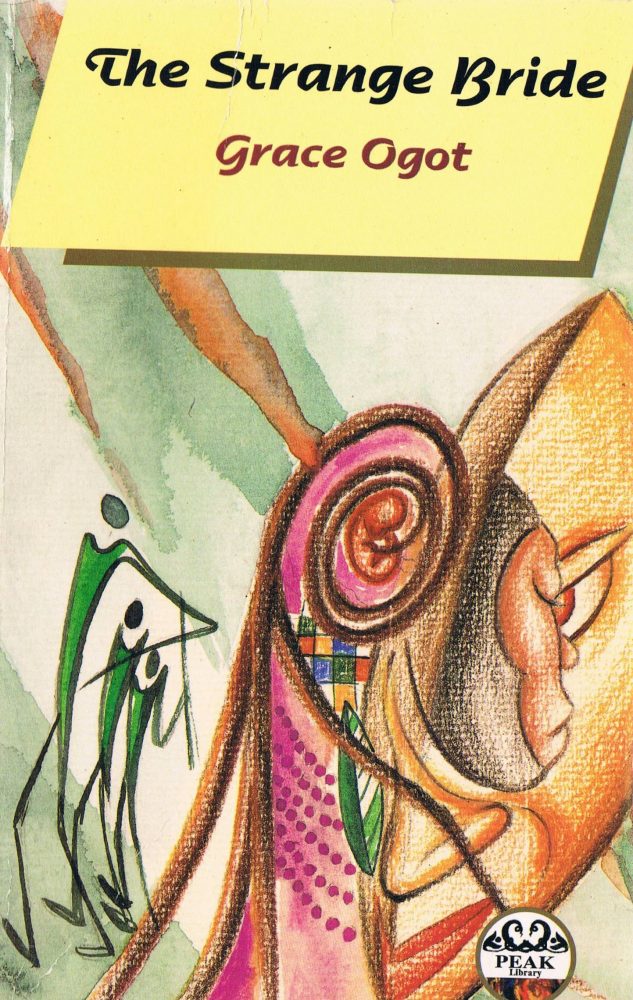
I have not actually read this one, though I have read Grace Ogot’s fable-esque collection Land Without Thunder, which I quite enjoyed. However, the collection, like most of her books is originally written in English. So I wanted to give a shout out to The Strange Bride, which is one of only a few books [currently] translated into English from an Indigenous African language, in this case Dhuluo.
So what’s it about?
The Strange Bride is a retelling of a Luo myth set in the fictional African village of Got Owaga. Things really pick up when Nyawir, a girl from a neighbouring village returns from the underworld (where she was taken as a child), and is married to Owiny, the son of Got Owaga’s chief.
However, what happened to her as a child is unknown to the residents of Got Owaga.
Soon Nyawir begins to undermine the routines that the villagers have worked so hard to establish in order to survive…
Thirteen Months of Sunrise by Rania Mamoun (Sudan)
Translated from the Arabic by Elisabeth Jaquette
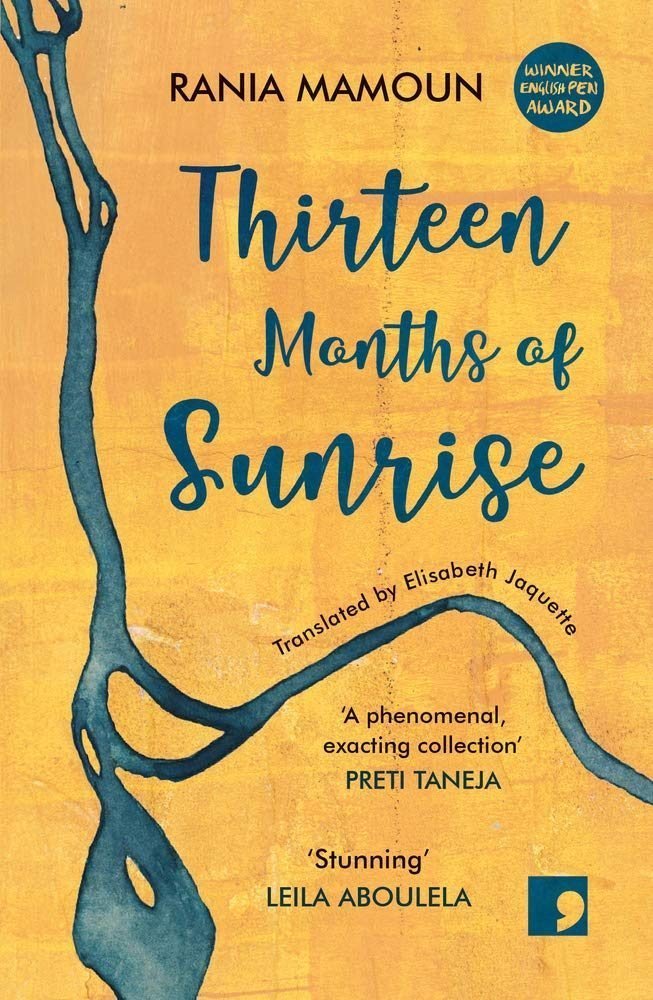
This collection of Arabic short stories by the author, journalist, and activist Rania Mamoun is one of the first ever translations of a Sudanese female author into English – calling into question just how much world literature exists out there, especially by women, that we in the Anglophone world have never had access to.
Thirteen Months of Sunrise is a captivating collection of Arabic short stories that burst with vibrancy. Here is a colourful cast of characters that simply exist in their world – they do not begin or end; they merely are.
As a reader, you feel privileged to have shared a day, or maybe just a moment, with them, utterly convinced by the notion that they’re carrying on their daily life in Sudan long after you’ve closed the book.
Mamoun plays with a variety of literary styles throughout and expertly blends scenes that are grounded in reality with surrealist episodes that never once feel out of place — reflecting the always off-kilter daily lives we all live.
Themes of colonialism, war, immigration, urban alienation, love, loss, and grief abound in these tales. Every story is a snapshot of something that makes life unique and special – not just life in Sudan but life as a citizen of Earth.
Sudan is one of the largest and most diverse states in Africa and Mamoun effortlessly paints a picture of the various communities and individuals that live together, often passing like ships in the night but inevitably sharing their commonalities while learning from one other.


